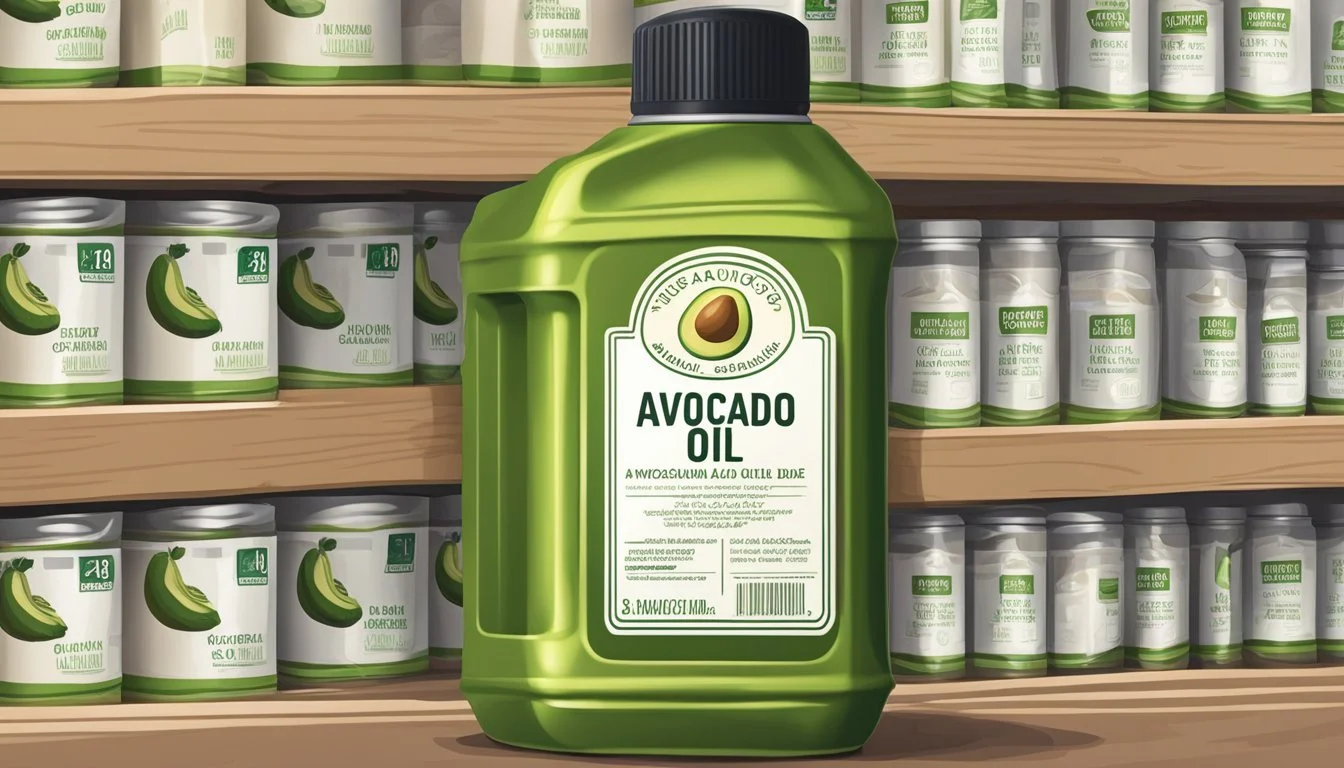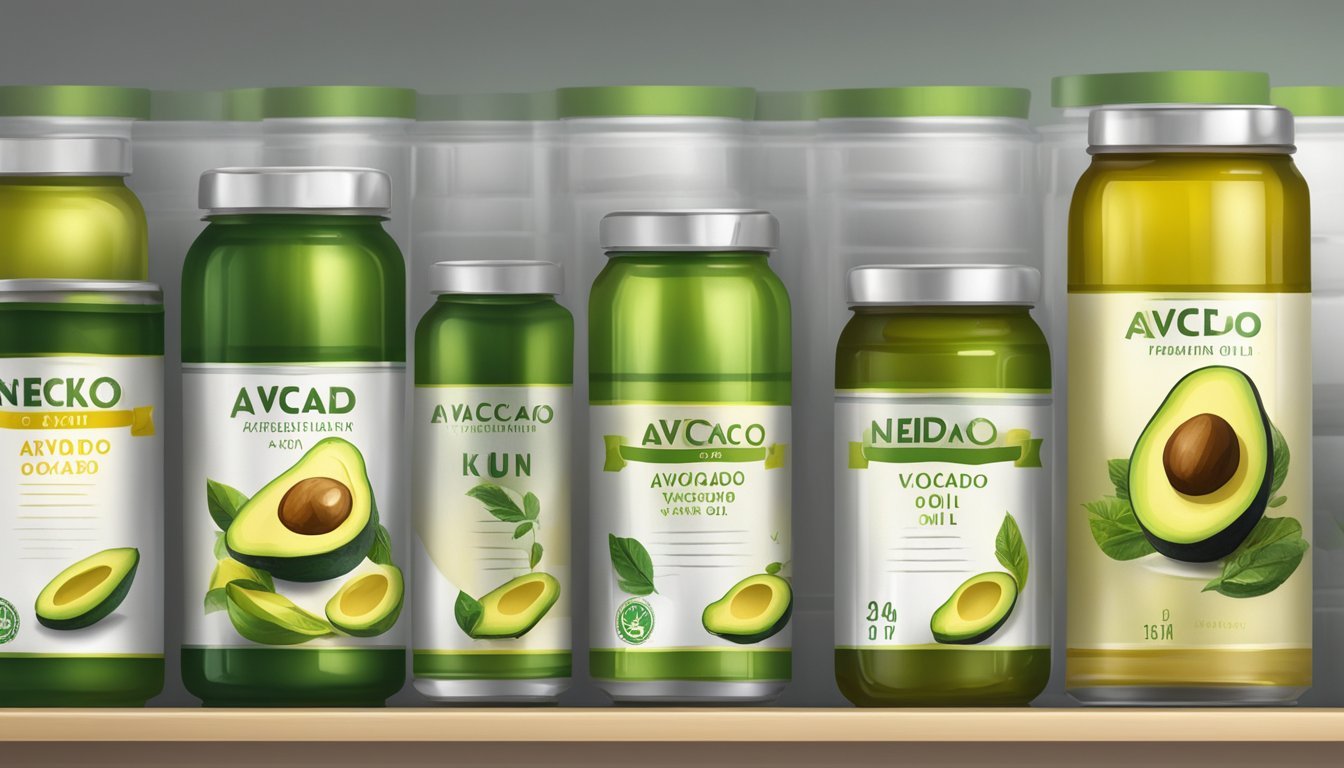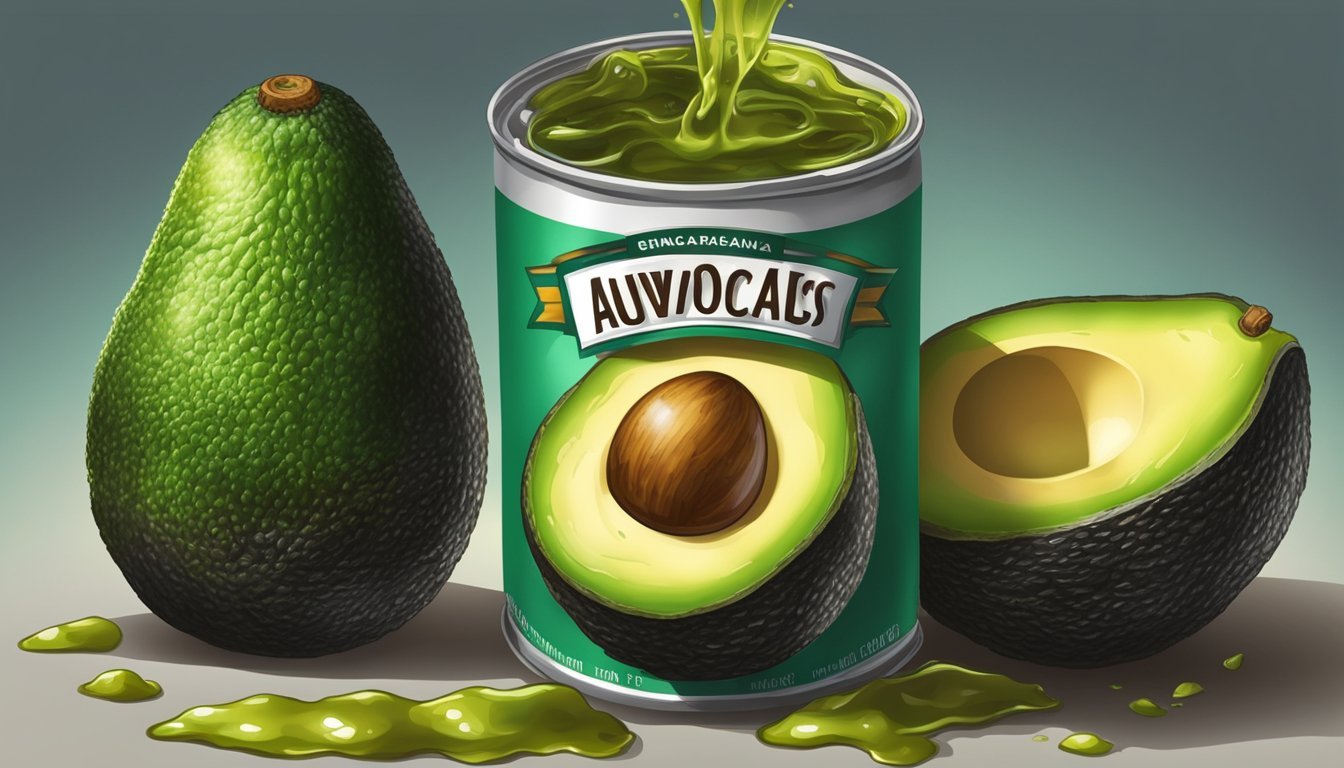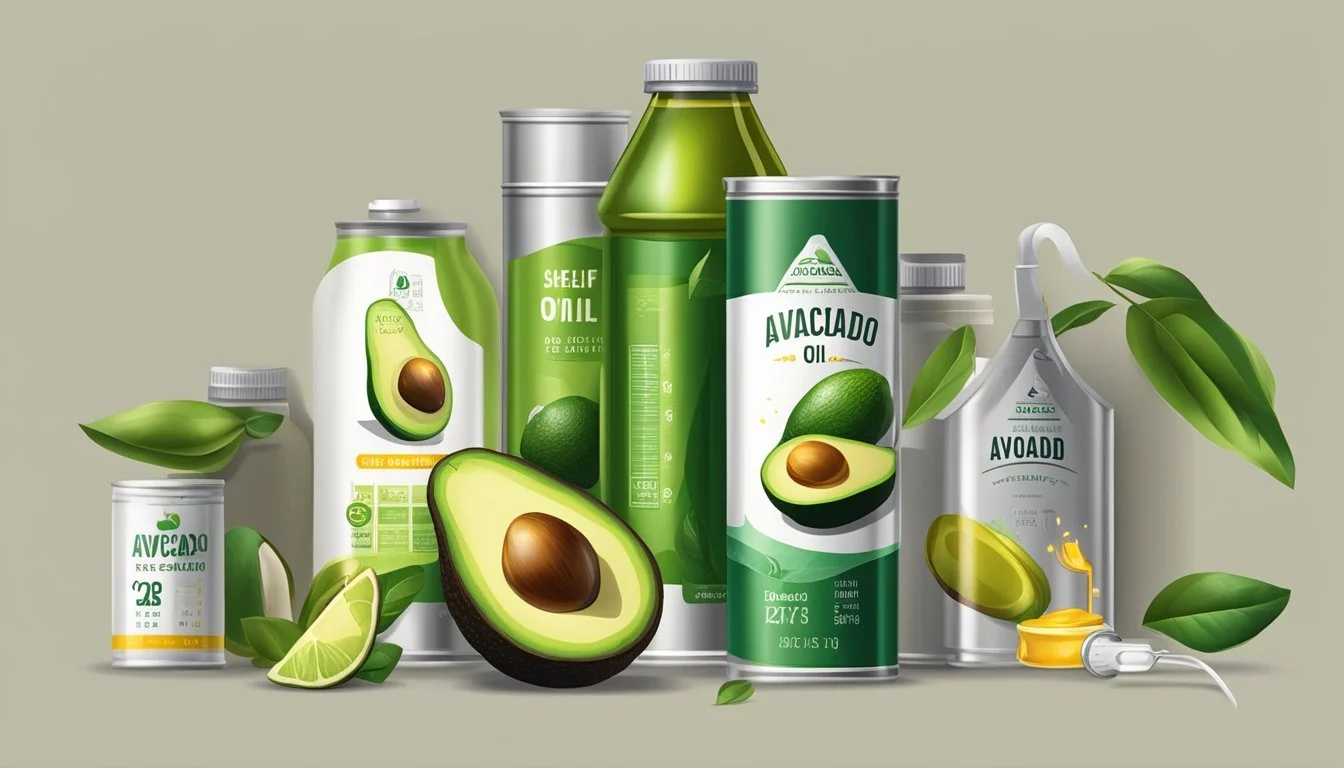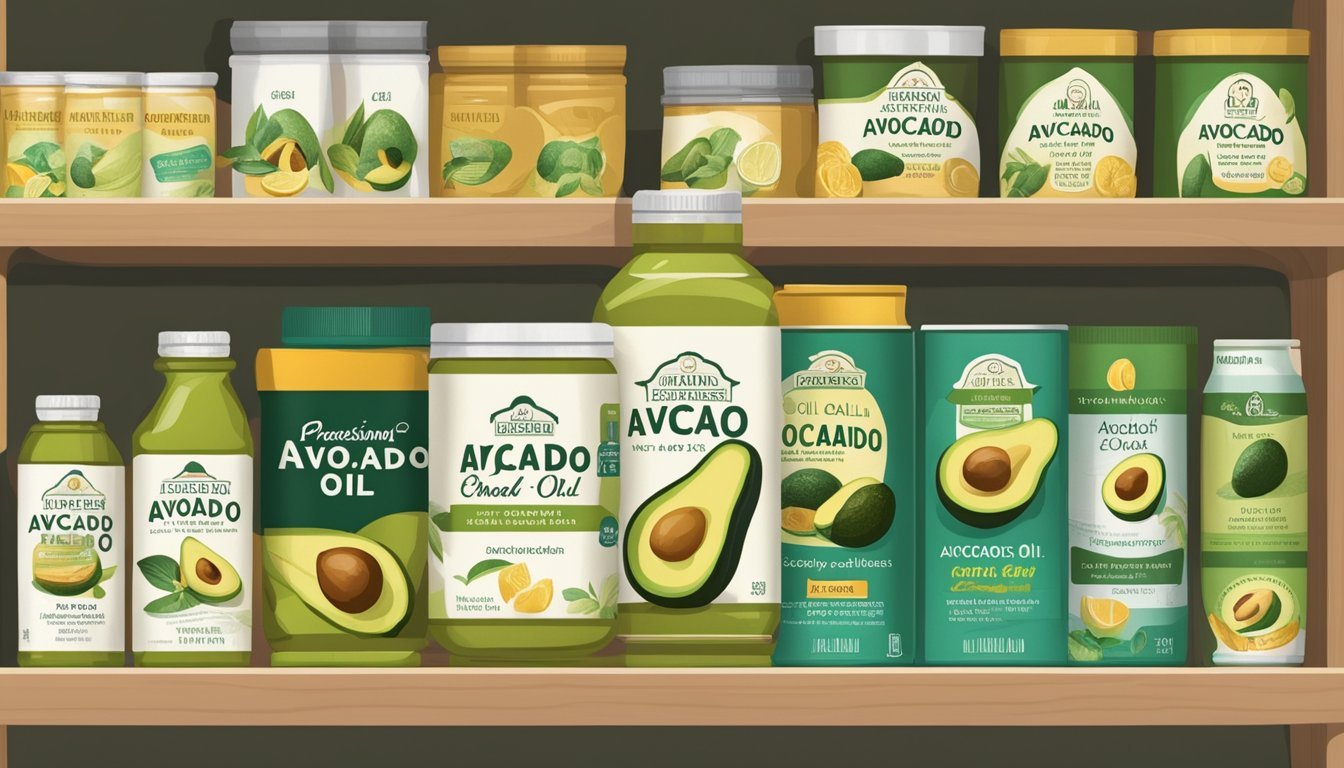How Long Does Canned Avocado Oil Last?
Shelf Life and Storage Tips
Avocado oil has become a staple for cooking enthusiasts and health-conscious consumers alike, prized for its rich texture, mild flavor, and high smoke point. The longevity of avocado oil is a factor that buyers often consider, as it can impact both the quality and cost-effectiveness of the product. When it comes to canned avocado oil, the shelf life is a key point of interest, resting on several aspects that include the method of processing and the conditions of storage.
The shelf life of avocado oil varies depending on whether it is refined or unrefined. Typically, unopened refined avocado oil can last for about 2 years when stored properly in a cool, dark place. Unrefined variations may have a shorter shelf life due to the presence of more natural particulates. Once the can is opened, the oil's exposure to oxygen, heat, and light begins to decrease its shelf life, generally limiting it to a period of 6 to 12 months. It is important for users to note that the quality of avocado oil, like many other natural products, can degrade over time, even before the estimated expiration date. Users should look out for changes in color, smell, and taste which indicate that the oil has gone bad.
Understanding Avocado Oil
Avocado oil has gained popularity due to its flavor profile, cooking versatility, and health benefits. This section delves into the two main types of avocado oil and the nutritional advantages they offer.
Types: Refined vs. Unrefined
Refined avocado oil is processed to remove impurities and natural sediments, resulting in a lighter color, milder flavor, and a higher smoke point. It is suitable for high-heat cooking methods such as frying and sautéing.
Smoke point: about 520°F (271°C)
Use: high-heat cooking, cosmetics
Shelf life: typically longer than unrefined
Conversely, unrefined avocado oil, also known as 'extra virgin' or 'cold-pressed,' retains more of the original flavor, color, and nutritional content of the fruit as it undergoes minimal processing.
Smoke point: around 375°F (190°C)
Use: dressings, sauces, low-heat cooking
Shelf life: shorter than refined due to higher levels of natural particles
Health Benefits and Nutritional Content
Avocado oil is prized for its health benefits and nutritional content. It is packed with monounsaturated fats, which are beneficial for heart health, and low in polyunsaturated and saturated fatty acids, making it a heart-healthy choice. In particular, the high levels of oleic acid, a type of monounsaturated fat, are also noted to contribute to the oil's stability and shelf life.
Nutritional highlights of avocado oil:
Monounsaturated fats: help with the reduction of LDL cholesterol
Vitamin E: an antioxidant that protects against free radical damage
Lutein: beneficial for eye health
Avocado oil's nutrient profile supports the maintenance of a healthy lifestyle when incorporated as part of a balanced diet.
Shelf Life Fundamentals
The shelf life of avocado oil, whether unopened or opened, is influenced by storage conditions. Proper storage can significantly extend its usability.
Shelf Life of Unopened Avocado Oil
Unopened avocado oil typically has a shelf life of up to two years. This duration hinges on its storage in a cool and dark environment. The expiration date on the label also offers a guideline, but the oil can remain usable beyond this date if conditions are ideal.
Shelf Life of Opened Avocado Oil
Once opened, avocado oil's shelf life reduces due to exposure to air and potential contaminants. Typically, it remains good for 6-12 months. To preserve its quality, one should seal it tightly after use and store it away from direct light and heat sources.
Signs of Spoilage
When detecting spoilage in canned avocado oil, one should observe for any changes in appearance, taste, and smell as these are indicative of spoilage. Quality degradation occurs over time, leading to rancidity and oxidation.
Changes in Texture and Color
Observing canned avocado oil for signs of spoilage should include checking for changes in texture and color. Oil that has spoiled may become cloudy or display a milky appearance. It may also solidify or show visible sediment at the bottom of the can. A noticeable deviation from the oil's typical light green to yellow hue suggests degradation.
Alterations in Taste and Smell
The flavor and smell of canned avocado oil are strong indicators of its quality. Fresh avocado oil should have a buttery and slightly nutty flavor, with a rich, earthy aroma. Spoiled oil, however, may taste bitter or sour, and it can emit an unpleasant or rancid odor. These changes in taste and smell reflect that the oil should no longer be consumed.
Rancidity and Oxidation
Rancidity occurs through oxidation, a process where the fatty acids in the oil break down when exposed to oxygen, light, and heat. This results in an off-putting odor and can adversely affect the quality of the oil. Canned avocado oil that has turned rancid will have a distinctly unpleasant smell and harsh taste, clear signs that the oil is no longer suitable for use.
Storage Best Practices
To preserve the quality and extend the shelf life of canned avocado oil, adhering to proper storage methods is crucial. These best practices ensure that the oil retains its flavor, color, and nutritional benefits.
Storing Avocado Oil in the Pantry
Avocado oil should be kept in a cool and dark place, such as a pantry or cupboard, away from sources of heat like the stove or sunlight. The pantry provides an ideal environment that is typically at room temperature, which helps to maintain the oil's freshness. By storing avocado oil in a pantry, one protects it from the light and heat that can accelerate spoilage.
Refrigeration and Freezing
While refrigerating avocado oil is not necessary, doing so can help in preserving its antioxidants for a longer period. If one chooses to refrigerate avocado oil, it may become cloudy or solidify; this is a natural process and does not affect the quality of the oil. Simply bring the oil to room temperature before use. Freezing is not recommended as it does not significantly extend the shelf life and can affect oil consistency.
Choosing the Right Containers
Airtight containers are essential for maintaining the integrity of avocado oil. One should opt for glass or stainless steel containers since plastic can sometimes leach chemicals into the oil. Tightly sealed containers prevent air exposure, which is vital since oxygen can degrade the oil over time. Always ensure the container is closed properly after each use to keep the oil protected.
Using Avocado Oil
Avocado oil is highly valued for its versatile applications in cooking and skincare due to its content of healthy fats and favorable smoke point. It thrives in roles traditionally occupied by oils like olive oil but offers a distinct flavor and nutrient profile.
Culinary Applications
Avocado oil is renowned in the culinary world for its high smoke point, which ranges from 375°F (190°C) to 520°F (271°C) depending on whether it's refined or virgin. This makes it an ideal candidate for various cooking methods, including:
Sautéing and Stir-Frying: Its high smoke point ensures that it can withstand the high heat needed for these techniques without breaking down and losing its nutritional value.
Baking: Avocado oil can serve as a healthier fat alternative in baking, providing a rich, moist texture to baked goods.
Salad Dressings: The oil's smooth, slightly nutty taste complements the freshness of salads and can be used to create emulsified dressings.
Avocado Oil in Skincare
Due to its moisturizing properties, avocado oil is commonly used in skincare as a natural moisturizer. Here's how it benefits the skin:
Hydration: It is rich in oleic acid and essential fatty acids that help to nourish and hydrate the skin.
Sun Protection: While avocado oil should not replace sunscreen, it can provide a mild barrier against the drying effects of sunlight.
Comparative Uses with Other Oils
When compared to other popular oils like extra virgin olive oil, avocado oil has similarities and differences:
Smoke Point: Avocado oil generally has a higher smoke point than olive oil, making it more versatile for high-heat cooking.
Flavor Profile: It is less pungent than extra virgin olive oil, offering a more neutral flavor suitable for a variety of recipes.
Nutrient Content: Both oils offer healthy fats, but avocado oil is particularly high in vitamin E and monounsaturated fats, which are beneficial for heart health.
Avocado oil stands out for its adaptability in the kitchen and its use as a nourishing skincare component. It provides a health-conscious alternative to other oils and adds its subtle taste to a multitude of recipes.
Factors Affecting Avocado Oil Shelf Life
Avocado oil's durability is contingent on certain factors that influence its quality and longevity. Proper storage conditions are instrumental in maintaining its beneficial properties.
Impact of Sunlight and Heat
Exposure to sunlight and heat can accelerate avocado oil's spoilage process. High temperatures and ultraviolet rays cause the oil to oxidize, leading to off-flavors, odors, and diminished nutritional value. For the preservation of heart health and cholesterol levels, it is essential to store avocado oil in a cool, dark place away from direct sunlight.
Exposure to Air and Moisture
When avocado oil comes into contact with air, oxidative reactions can initiate, and when compounded with moisture, the risk of spoilage increases. A tightly sealed container is paramount to prevent exposure to air and retain its health-promoting qualities, including beneficial effects on blood pressure.
Non-ideal Storage Conditions
Storing avocado oil in non-ideal conditions, such as variances in temperature or in a well-lit room, can lead to the degradation of its fatty acids, causing potential health risks. These can range from minor digestive issues to more severe cell damage. Consistent storage conditions in a cool, dark environment reduce these risks and aid in the prevention of ingesting compromised oil.
FAQs About Avocado Oil Storage
When storing avocado oil, one must be aware of its shelf life, conditions that prolong freshness, and the signs and risks of spoilage.
Can Avocado Oil Go Bad?
Yes, avocado oil can go bad. An unopened container of avocado oil typically remains fresh for up to two years, while an opened one is good for about 6 to 8 months if stored properly. Signs of spoilage include a change to a rancid or nail polish remover aroma, and the oil may become cloudy or solidify at low temperatures.
How Can You Extend Avocado Oil's Shelf Life?
To extend the shelf life of avocado oil, one should store it in a cool, dark place away from direct sunlight. It’s crucial to keep it in an airtight container to minimize exposure to oxygen. Additionally, one should always use clean utensils to avoid contamination. Storing avocado oil in the refrigerator can also help preserve its buttery flavor and maintain its smoking point, which is ideal for cooking.
What Are the Health Risks of Using Spoiled Oil?
Using spoiled avocado oil carries certain health risks, such as digestive issues and, in severe cases, could contribute to cell damage due to the consumption of oxidized fats. While the carrier qualities of fresh avocado oil are beneficial for both food and topical applications, using it beyond its prime can compromise both its health benefits and culinary attributes.


